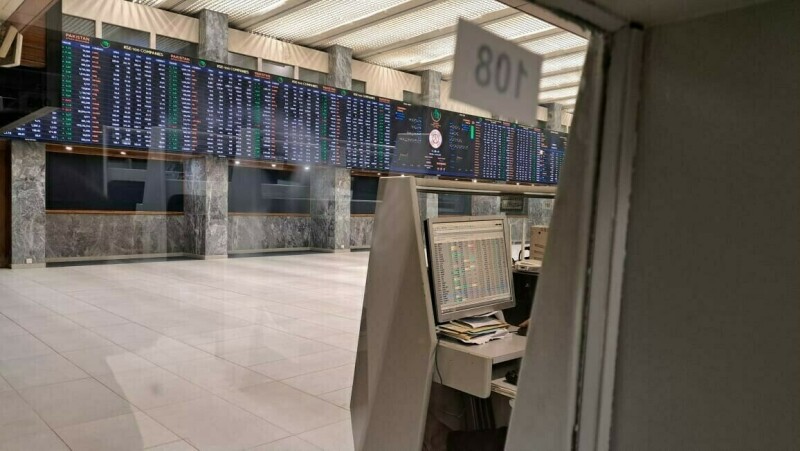Positive sentiments were observed at the Pakistan Stock Exchange (PSX), as investors rejoiced over Moody’s Ratings’ improvement in Pakistan’s credit rating, pushing the benchmark KSE-100 Index inching near the 147,000 level during the first half of the trading session on Friday.
At 12pm, the benchmark index was hovering at 146,967.93 level, an increase of 438.63 points or 0.30%.
Buying interest was seen in key sectors including automobile assemblers, commercial banks, fertilizer, oil and gas exploration companies, OMCs and refinery. Index-heavy stocks including ARL, NRL, OGDC, POL, PPL, PSO, MCB, MEBL and NBP traded in the green.
Analysts attributed the buying rally to improvement in investor sentiments after Moody’s on Wednesday upgraded the government of Pakistan’s local and foreign currency issuer and senior unsecured debt ratings to Caa1 from Caa2.
The global rating agency also upgraded the rating for the senior unsecured MTN programme to (P)Caa1 from (P)Caa2 and concurrently changed the outlook for the government of Pakistan to stable from positive.
Leading business organisations in the country, including the Federation of Pakistan Chambers of Commerce and Industry (FPCCI), the Businessmen Forum, and the North Karachi Association of Trade and Industry (NKATI), have welcomed Moody’s decision, calling it a highly positive development for the country’s economic future.
Apart from credit rating improvement, an International Monetary Fund (IMF) delegation is scheduled to visit Pakistan at the end of September, with the country expecting to receive the third tranche of $1 billion upon completion of the next review.
Meanwhile, the State Bank of Pakistan (SBP), in its first-ever biannual Monetary Policy Report published on Wednesday, said that the return of stability in the domestic economy has promoted the country “in a better position today to manage external shocks and domestic risks than it was two years ago”.
The central bank said foreign investment inflows were projected to improve in the wake of the recent upgrade in the country’s sovereign credit rating and the resultant decline in CDS (credit default swap) spreads.
“All these factors, combined with fresh liquidity moving from the debt market into equities, have contributed to the recent momentum,” Waqas Ghani, Head of Research, told Business Recorder.
On Wednesday, PSX experienced a session of mild profit-taking, as bears took control amid concerns over a surge in the trade deficit and unmet IMF conditions for provincial tax collection.
The KSE-100 Index closed at 146,529.31 points, a decrease of 476.02 points or 0.32%.
The stock market was closed on Thursday, i.e. 14th August, on account of a public holiday.
Globally, Asian stocks made an uneven recovery as higher-than-expected producer price inflation dampened expectations of a jumbo rate cut at the Federal Reserve’s September meeting, while US bonds and equity futures stabilised.
MSCI’s broadest index of Asia-Pacific shares outside Japan was down 0.3% after a report on Thursday from the Bureau of Labor Statistics, which showed the Producer Price Index increased 0.9% in July on a month-over-month basis, well above economists’ expectations.
The market is currently pricing in a 92.1% probability of a 25 basis point rate cut at its September meeting, compared with a 100% likelihood of a cut on Thursday, according to the CME Group’s FedWatch tool. The chance of a jumbo 50 basis point cut fell to 0% from an earlier expectation of 5.7% a day ago.
This is an intra-day update


